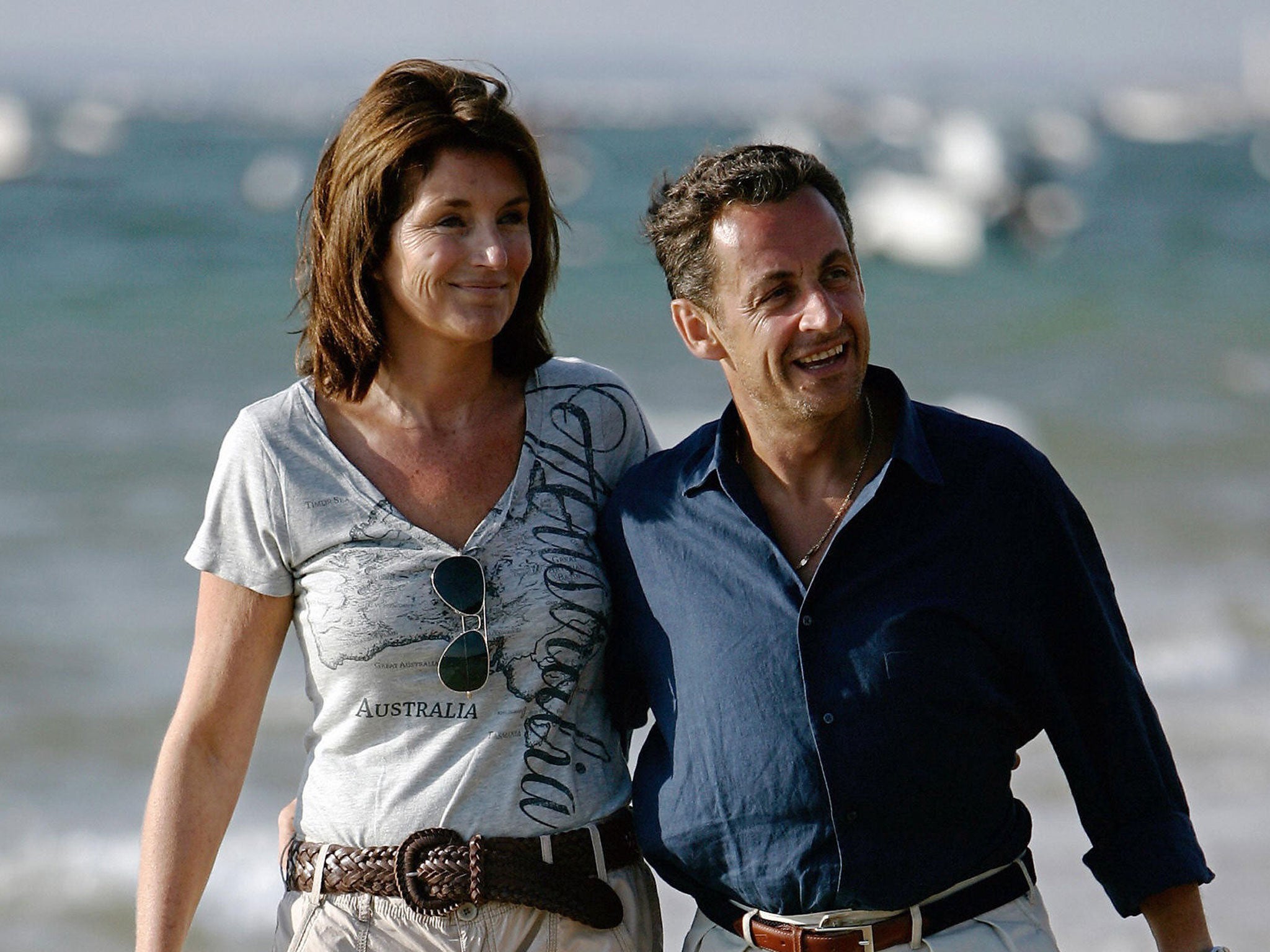After the divorce my friends queued up to wed him, says former Mrs Sarkozy
Cecilia Attias says that she left Nicolas Sarkozy shortly after his election in 2007 'because he had sort of forgotten me'

Your support helps us to tell the story
From reproductive rights to climate change to Big Tech, The Independent is on the ground when the story is developing. Whether it's investigating the financials of Elon Musk's pro-Trump PAC or producing our latest documentary, 'The A Word', which shines a light on the American women fighting for reproductive rights, we know how important it is to parse out the facts from the messaging.
At such a critical moment in US history, we need reporters on the ground. Your donation allows us to keep sending journalists to speak to both sides of the story.
The Independent is trusted by Americans across the entire political spectrum. And unlike many other quality news outlets, we choose not to lock Americans out of our reporting and analysis with paywalls. We believe quality journalism should be available to everyone, paid for by those who can afford it.
Your support makes all the difference.For six years she has remained silent, more or less. In a book to be published next week, Nicolas Sarkozy’s second wife, Cécilia, speaks out… a little.
Cecilia Attias, 53, now living with her third husband in New York, says that she left Mr Sarkozy shortly after his election in 2007, “because he had sort of forgotten me”.
She reveals that several of her friends immediately scrambled to divorce their husbands in the hope of achieving “wealth and power” by marrying the bachelor President. All of them were disappointed, when Mr Sarkozy married Carla Bruni six months after Cecilia left.
The former first lady explains that, once inside the Elysée Palace, Mr Sarkozy was transformed from “dynamic” politician to an “agitated” president, prone to “terrible rages”. The world already knows that? Yes, but Cecilia goes on to give an interesting, if self-serving, psychoanalysis of the man with whom she lived for 25 years.
“It is strange,” she writes “that this man who was totally placid in his private life, a man who never raised his voice at home… managed to project such an impulsive public image.”
As a candidate, she says, Mr Sarkozy was concerned for “all victims” and “those left by the wayside”. In power, he “disturbed public opinion” with his “worrying impulses” and “shocking comments”.
Ms Attias is especially critical of former President Sarkozy’s unsuccessful re-election campaign last year in which he borrowed hard-right and populist themes and language from the National Front. She said: “he ran after voters on the extremes, and scarcely found any, when every political expert will tell you that elections in France, like most great democracies, are won in the centre.” The unspoken implication is that Mr Sarkozy lost his political bearings when he lost Cecilia, who had been his informal political adviser and spokeswoman for common-sense. However, she rejects suggestions she was the driving force behind Mr Sarkozy’s rise to power.
“Contrary to what has been written, I never sought to influence my former husband,” she writes. “I never advised him to take one direction rather than another.”
The book, “Une envie de verité (A desire for the truth) – has been the subject of much advance speculation and curiosity. The news magazine Le Point, published extracts, which turned out to be largely bland. There were no bitter recriminations against Mr Sarkozy; no catty comments about Carla. Le Monde said: “Those who expected... the settling of accounts will be disappointed.”
Cecilia Attias divorced Mr Sarkozy in October 2007, four months after he was elected president. She is now married to a French PR executive, Richard Attias, for whom she had left Mr Sarkozy for 12 months in 2005-6.
She says that she fell for Mr Attias because he was “solid, precise and reassuring” – the “opposite” of the “superficial” political world that she had come to detest.
“I am just a simple person who has had a complicated life,” she writes.
Join our commenting forum
Join thought-provoking conversations, follow other Independent readers and see their replies
Comments